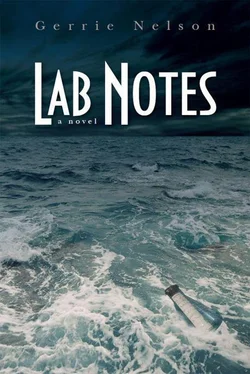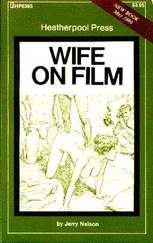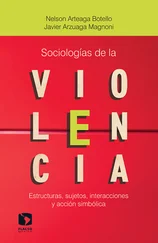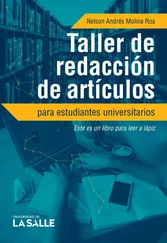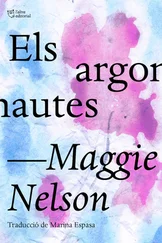Diane found conferences and presentations interesting, but less than exciting. The promise of a field trip, however, was always compelling.
A montage of past adventures crowded Diane’s mind: chasing plant poachers through Quito’s marketplace; dodging ubiquitous bands of revolutionaries in Colombia; canoeing for days in quest of the healing mavaco bark in Panama—only to find a hostile shaman standing guard over the trees; climbing liana vines, in various countries, to harvest rare medicinal passion flowers ( Passiflora ) and encountering poison dart frogs ( Phyllobates terribilis )—the name says it all, double-headed snake caterpillars ( Pholus labruscae) —startling—both coming and going, and fanged Peruvian tarantulas ( Avicularia )—black furry legs and pink fuzzy toes, but less than cuddly.
Diane loved jungle trekking and feared it too. But she felt she needed it to balance the textbook and test tube parts of her life.
By ten minutes to eleven, the students had completed their discourses on ethics, and Professor Rose dismissed the class for the holiday. As students turned on cell phones and gathered backpacks, she raised her voice over the commotion.
“Have a nice Thanksgiving. Good luck on your finals. See you next semester.”
* * *
Olimpia Garza grimaced when the phone in her pocket vibrated. She had forgotten to turn it off, and the attendants were closing the airplane door. She dug out the phone and checked its screen. It was an international call. She exhaled through pursed lips and rolled her eyes; university politics wasted so much of her time. She had already given her blood oath that she would attend tomorrow’s meetings in Bogota—unless, of course, the plane went down. What better assurance could she offer?
She glanced around the business class section—not a flight attendant in sight. She pressed the green button and spoke just above a whisper. “ Hola .” Her heart lurched. “Oh, it is you.” He was the last person on the planet she wanted to hear from.
“I trust you had a fruitful visit,” he said.
“I cannot speak now; my plane is backing away from the gate in Houston.”
Olimpia’s thumb wavered over the “off” button, her only defense against him. But, even a continent away, the voice on the phone held a tighter grip on her than the seatbelt cinched across her lap. She could not hang up.
“I will be brief,” he said. “I want you to come out to the island tomorrow and stay overnight. That will give us time to talk.”
Olimpia shook her head violently. No, that would not be possible . She found her voice and said, “I have urgent meetings scheduled at the university all day tomorrow and the next day.”
He responded in a friendly tone; a man accustomed to giving orders did not need to sound demanding. “Your meetings can wait. I will send the helicopter for you at noon tomorrow. You know the landing site.”
* * *
It was snowing. And all over campus, students celebrated the first storm of the season by tilting their faces up to catch the wet confetti on their tongues.
Diane Rose stepped outside, pulled on her gloves and looked skyward. Maybe she wouldn’t take the shuttle bus after all; she would walk the four blocks to Foster Hall where she and her husband Vincent shared an office and laboratories.
She stopped at the curb under the red flashing pedestrian light. The air was dense with filigreed snowflakes. The white silence-in-motion was much like the green stillness of the jungle at midday—quiet, beautiful and potentially treacherous.
The traffic light changed, and Diane was swept across the street on a tsunami of chattering, tweeting, texting students. She dug her cell phone out of her shoulder bag and checked the screen. No messages. She hadn’t been able to reach Olimpia Garza. Most likely, she’d already boarded her plane back to South America.
Olimpia’s message had aroused Diane’s semiannual urge to escape from her day jobs. She made a mental note to email her later. Olimpia might provide the perfect diversion.
Diane often puzzled over her compulsion to keep moving. To most observers she appeared to be completely absorbed in her teaching, her laboratory work, and her marriage. But, in fact, she was always looking over the horizon, poised to jump to the next place, the next project.
Vincent once said that, having been orphaned at an early age, she was always expecting loss and trying to outrun it.
Perhaps she did have a deep-seated fear of abandonment. She had to admit that easy commitment was not her strong suit. If she had been unprepared for Vincent’s proposal of marriage, she likely would have panicked and bolted from the restaurant the night he popped the question. But she had done her homework beginning day one of their relationship, interrogating him about his family’s health—back three to four generations—until she was satisfied that, for the most part, he had no serious threats to his longevity.
Vincent admitted that, early on, he was concerned with Diane’s morbid interest in his ancestors’ afflictions and wondered if she’d reject him based on a few of his progenitors’ preexisting conditions.
Diane thought of people, places and things as being as transient as time. Returning from field trips, she was always pleasantly surprised to find her world still nailed down.
Reaching the top step outside Foster Hall, Diane caught her reflection in the glass doors. The melted snow had tightened her hair into auburn coils—her “Carrot Top look” Vincent called it. She fluffed some droplets out of her curls and entered the building.
Vincent Rose sat at his computer doing a statistical analysis of some data regarding his experimental Parkinson’s drug, Peruvase. Diane came up behind him and placed her hands on his beard for warmth.
Vincent jumped. “You’re wet. Is it raining?”
Diane pointed to the window and the falling snow. “How long have you been at the computer?”
He shrugged. “Are you finished with class already?” He looked at the snow, then at his watch. “How did it get to be noontime? Maybe we should leave before we’re snowed in.”
“It’s not cold enough for it to stick to the pavement yet. We’re probably safe for an hour or so.”
Diane glanced sideways at the assortment of unopened envelopes cluttering Vincent’s desktop. “When was the last time you opened your mail?” she asked.
“Hmm?” He was focused on his computer again.
Vincent was an able administrator and good researcher but rarely mixed the two functions. This week he was in his research mode with little time for anything else.
Diane hung her coat on a wall hook, gathered an armful of mail and walked to other end of the room. She dumped the mail onto her desk, dropping a FedEx envelope onto the floor and scattering her desktop display of condor foot bones.
She bent forward, stretching her arm toward the bones—but stopped short. If Vincent would, by chance, turn his head just slightly to the left, he could catch her in the act of aiming the condor’s center toe toward the East. And today there wasn’t time for more of his voodoo jokes.
The bones of the venerated prehistoric Andean condor ( Vultur gryphus ) were said to convey health and power. In mythology, the condor was the ruler of the upper world because of its closeness to the sun deity. The foot bones were given to her by a Peruvian shaman with the caveat that the elongated center toe must point to the East, to the rising sun, or she would suffer the consequences.
When Vincent first saw her aligning the bone, using a compass, he teased her mercilessly. “Ahh-h, the rite of the condor,” he had said with mock reverence. “Tell me, did the shaman say anything about magnetic declination when using a compass? Something to think about Diane—any inaccuracy and zap! There go your powers.” Diane smirked and ignored him. But that didn’t stop his needling.
Читать дальше
